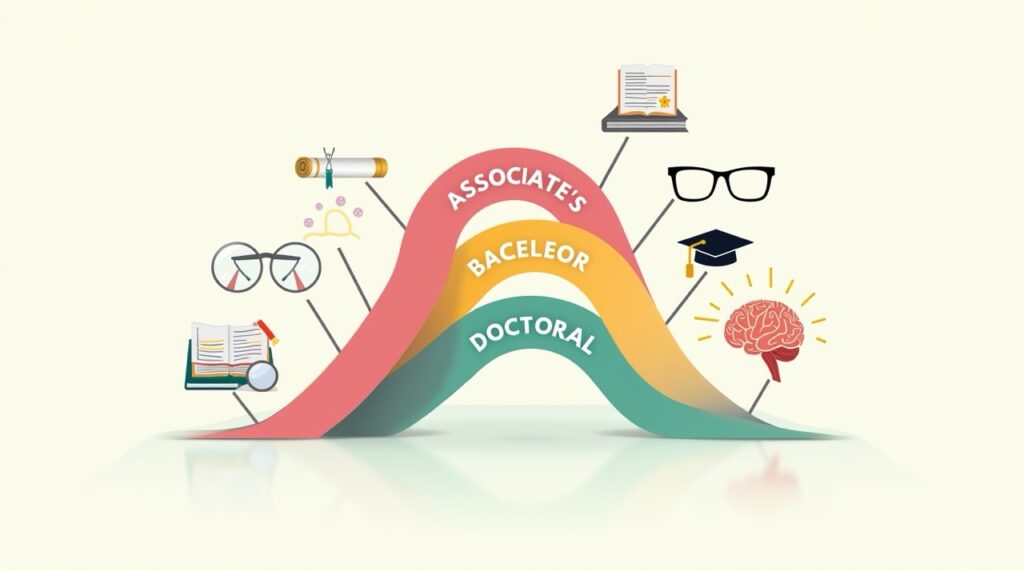Introduction
Psychology is the study of the human mind and behavior. If you are interested in understanding why people think, feel, and act in certain ways, a psychology degree may be the right choice for you. With the rise of online education, earning an accredited psychology degree has become more accessible than ever. This guide will help you explore your options, understand accreditation, and learn about career opportunities in psychology.
What is an Online Accredited Psychology Degree?
An online accredited psychology degree is a program offered by a recognized institution that meets specific educational standards. Accreditation ensures that the degree is legitimate and accepted by employers and other educational institutions. These programs allow students to study from home while receiving the same quality education as on-campus students.
Benefits of Studying Psychology Online
1. Flexibility
One of the biggest advantages of an online psychology degree is flexibility. You can study at your own pace and schedule classes around work or personal commitments.
2. Accessibility
Online programs allow students from different locations to access quality education without relocating. This is especially helpful for those who live far from universities offering psychology degrees.
3. Cost-Effective
Online degrees can be more affordable than traditional programs. Students save on transportation, housing, and other campus-related expenses.
4. Diverse Learning Resources
Online programs provide access to various learning materials, including video lectures, e-books, and discussion forums. This enhances the learning experience and allows students to engage in different ways.
Understanding Accreditation
Accreditation is essential when choosing an online psychology program. It ensures that the education you receive meets high-quality standards and is recognized by employers and licensing boards.
Types of Accreditation
- Regional Accreditation – The most widely accepted accreditation for universities in the U.S.
- National Accreditation – Often given to career or technical schools.
- Programmatic Accreditation – Specific to psychology programs, provided by organizations like the American Psychological Association (APA).
Before enrolling in a program, check its accreditation status through the U.S. Department of Education or the Council for Higher Education Accreditation (CHEA).
Degree Levels in Psychology

Psychology degrees are available at different levels, each leading to various career paths.
1. Associate Degree in Psychology
An associate degree is a two-year program that introduces students to basic psychology concepts. It can lead to entry-level jobs in mental health support or be a stepping stone to a bachelor’s degree.
2. Bachelor’s Degree in Psychology
A bachelor’s degree is the minimum requirement for most psychology-related jobs. It takes about four years to complete and covers various topics such as human behavior, research methods, and cognitive psychology.
3. Master’s Degree in Psychology
A master’s degree allows students to specialize in areas like clinical psychology, counseling, or organizational psychology. It usually takes two years and provides more career opportunities than a bachelor’s degree.
4. Doctoral Degree in Psychology
A doctoral degree (Ph.D. or Psy.D.) is required for becoming a licensed psychologist. It can take between 4-7 years to complete and includes research, internships, and clinical training.
Specializations in Psychology
Psychology is a broad field with several areas of specialization. Choosing a focus can help you align your studies with your career goals.
Clinical Psychology
Clinical psychologists diagnose and treat mental health disorders. They work in hospitals, clinics, and private practices. They may also conduct research to develop new treatment methods.
Counseling Psychology
Counseling psychologists help people deal with everyday challenges, such as stress, relationships, and personal growth. They often use talk therapy techniques to help individuals develop coping strategies.
Forensic Psychology
Forensic psychologists work within the legal system, helping law enforcement understand criminal behavior and provide expert testimony. They may also assess the mental state of defendants to determine competency for trial.
Industrial-Organizational Psychology
This field focuses on improving workplace productivity and employee well-being. Professionals in this area design training programs and assess job performance to enhance organizational efficiency.
School Psychology
School psychologists work in educational settings to support students’ mental and emotional well-being. They collaborate with teachers and parents to create supportive learning environments.
Admission Requirements for Online Psychology Degrees

Each program has its own admission requirements, but common ones include:
- A high school diploma or GED (for undergraduate programs)
- A bachelor’s degree in psychology or a related field (for master’s programs)
- Transcripts from previous schools
- Letters of recommendation
- A statement of purpose explaining why you want to study psychology
- Standardized test scores (sometimes required)
Career Opportunities with a Psychology Degree
A psychology degree opens doors to various career paths in different industries.
1. Mental Health Counselor
Mental health counselors provide support to individuals dealing with emotional or psychological issues.
2. Human Resources Specialist
HR specialists use psychology to improve employee relations and workplace environments.
3. Market Research Analyst
These professionals study consumer behavior to help businesses understand their customers.
4. Social Worker
Social workers assist individuals and families facing challenges like poverty, abuse, or addiction.
5. Psychologist
Licensed psychologists diagnose and treat mental health disorders, conduct research, and work in various settings.
Challenges of Studying Psychology Online
While online psychology degrees offer many benefits, there are also challenges to consider.
1. Self-Discipline
Online learning requires strong time management skills to stay on track with coursework.
2. Limited Hands-On Experience
Psychology involves practical experience, which can be harder to obtain in online programs. Some schools offer hybrid options with in-person training.
3. Accreditation Issues
Not all online programs are accredited, so it’s essential to research before enrolling.
How to Choose the Right Online Psychology Program

When selecting a program, consider the following factors:
Accreditation – Ensure the program is accredited by a recognized agency. Accreditation guarantees that the education meets quality standards and is respected by employers.
Curriculum – Look for courses that align with your career goals. A well-structured curriculum will provide the necessary knowledge and skills for your chosen specialization.
Faculty – Research the qualifications and experience of instructors. Professors with real-world experience and strong academic backgrounds can enhance your learning.
Cost – Compare tuition fees and available financial aid options. Some programs offer scholarships, grants, or flexible payment plans to make education more affordable.
Student Support Services – Check for career guidance, academic advising, and technical support. Strong support services can help you navigate challenges and succeed in your studies.
Conclusion
An online accredited psychology degree is a great option for those interested in understanding human behavior and helping others. With various degree levels, specializations, and career paths, psychology offers many opportunities. By choosing an accredited program and staying committed to your studies, you can achieve a rewarding career in psychology. Start researching today and take the first step toward your future!